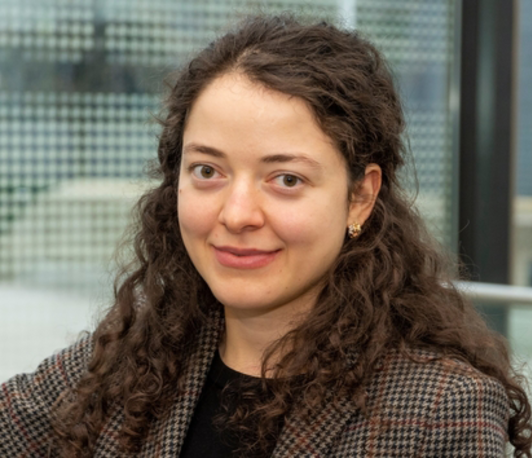Quantum correlations in quantum causal structures
Institutskolloquium
- Date: Mar 3, 2023
- Time: 10:30 AM - 12:00 PM (Local Time Germany)
- Speaker: Prof. Dr. Mariami Gachechiladze
- Mariami Gachechiladze is assistant professor in the Quantum Computing Group at the Technical University of Darmstadt.
- Location: Zoom Meeting Room 1
- Room: Zoom Meeting
- Host: Dmitry Moseev
- Contact: dmitry.moseev@ipp.mpg.de

Mariami Gachechiladze is an assistant professor in quantum computing at the Technical University of Darmstadt. She obtained her MSc in theoretical computer science at the University of Oxford (specialization in categorical quantum mechanics) and received her Ph.D. degree at the University of Siegen for her research on quantum information processing and entanglement theory (Theoretical Quantum Physics). After, she moved to work at the Univesity of Cologne in theoretical physics and worked to advance our understanding of quantum causality. Specifically, she worked on the theory and experiment to decide whether observed statistics are compatible with a given quantum causal structure. Since 2022, she has moved to Darmstadt, and her research focuses on the foundations of quantum physics and their applications in quantum computation and quantum secure communication.
In theoretical physics, quantum nonlocality refers to the phenomenon by
which the measurement statistics of a multipartite quantum system do not
admit an interpretation in terms of a local realistic theory. Since its
theoretical foundation by John Bell in 1964, it has become one of the
most prominent tools in almost all aspects and applications of quantum
information theory. Here, we will give an introduction and review some
of the prominent examples. Motivated by the foundations and wide gamut
of applications, investigating the set of observable statistics in
quantum experiments is crucial to learn the limitations of quantum
mechanics. Consequently, it becomes evident that if we want to probe and
test the nature of quantum mechanics, we cannot assume its theoretical
formalism. Instead, we need to start our investigation with more general
physically motivated theories and hope to derive observable quantum
correlations from them. In this contribution, we start from the physical
principle called Information Causality, and we derive an infinite
family of polynomial inequalities the observed statistics must obey. We
compare our results with the other known physical principles and show
that Information Causality could retrieve the formalism of quantum
theory. We further discuss sets of quantum correlations attainable in
arbitrary causal structures and the importance and difficulties
characterizing them.